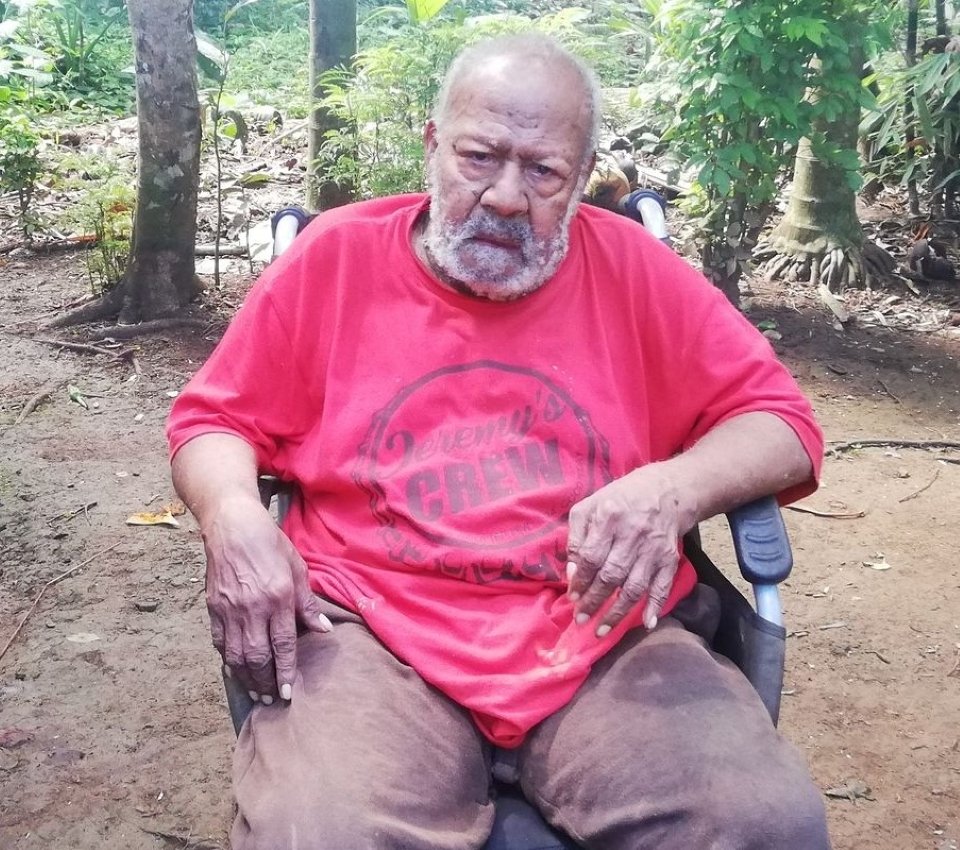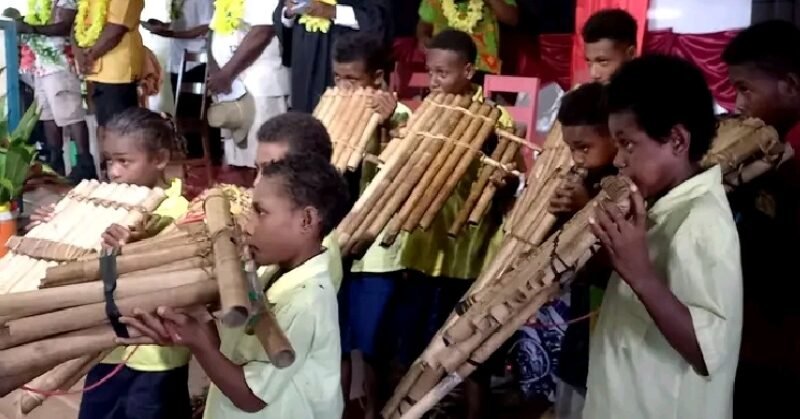Makira’s Traditional Panpipers Incorporate Orchestra into Their Music
BY CHRIS ALEX
THE Makira/Ulawa province-based bamboo panpipe group, the Dahui Kalsa, which is comprised of young, talented panpipers, has incorporated an orchestral style of playing music into their traditional melodic tunes.
The Dahui Kalsa Panpiper group is probably one of the surviving traditional music groups in Makira province and has gained popularity since its formation in the 1970s. The group was formed by Arthur Oroi in Tawatana Village, Arosi 1 District, in the western region of Makira Province in the Solomon Islands.
This panpipe group has over the years revolutionized their traditional panpipe music with an innovative playing style of orchestras led by a conductor [with movements of his hands and arms] who directs and influences their style of traditional melodic tunes that has captivated their rural audience.
Dahui Kalsa’s group member and grandson of Arthur, Lionel Bazzu, said with a history steeped in traditional music, the group is hoping to make waves with their unique blend of traditional bamboo orchestra music.
“Our affinity for traditional panpipe music has grown stronger over the years, which has led us down the path to creatively and innovatively explore beyond the landscape of traditional panpipe music.
“It was Arthur, our group’s leader, who took a decisive turn when he decided to combine the sounds of traditional bamboo orchestra music with modern elements. This fusion, bridging ancient rhythms with contemporary melodies, created a symphony that captured the essence of his upbringing. As his experiment bore fruit, Arthur began to impart his newfound knowledge to his kids and siblings, transforming his creation into a family affair.

“The cornerstone of Dahui Kalsa’s melodic sounds was the integration of traditional drum beats that harmoniously accompanied their bamboo orchestra.
“These drum beats, named ‘Ahai’ and ‘O’o Ruruta’ in the Arosi language, have provided the rhythmic backbone that supports the melodic tapestry woven by the bamboo instruments. This mixture became the signature sound that defined Dahui Kalsa’s music,” the grandson of Arthur, Lionel, said.
He said the first generation of Dahui Kalsa was a family affair, with Arthur’s kids, brothers, sisters, and close relatives forming the initial band members.
“The 1980s marked a turning point when the group began to share their innovative bamboo orchestra music with the world. Their distinct sound, echoing the cultural heritage of Tawatana Village and Makira Province, gained them exposure as they graced events such as the West Makira Games and Kakamora Games in Makira’s capital township of Kirakira.
“However, as life’s responsibilities caught up with the first-generation band members, Dahui Kalsa faced a period of transition. Marriages and family commitments led to a decline in the original lineup’s availability. This prompted a hiatus in the early 2000s, during which the group’s founder called for a break.
“Yet, like a resilient melody that refuses to fade away, Dahui Kalsa made a comeback in 2007. The torch was passed to a new generation of musicians, including Arthur’s grandchildren, some of whom were emerging local artists like Ramo,” Lionel told TOURISM MEDIA.
He continued that the group experimented with new ideas by experiencing the practical uses of the solfege and tonic sol fa systems for learning music, developing aural skills, and the hand signs that belong to sol fa.

“We learn about the music performance lessons about the sol fa names, how they relate to degrees of the scale within a key, and how to use the hand signs, while at the same time ultimately returning to our roots and preserving the essence of Dahui Kalsa’s distinctive sound,” he said.
Lionel recalled that their defining moment was in 2012, when Dahui Kalsa left an unforgettable mark at the Festival of Pacific Arts in Honiara, enchanting the audience with the magical sounds of Tawatana in Makira Province.
He continued: “Today, Dahui Kalsa stands as a vibrant group, comprised mainly of children aged 6 to 15. These young musicians are perfecting their skill through rigorous training. Their dedication to mastering every note in just six months showcases their unwavering commitment to preserving and promoting Dahui Kalsa’s musical legacy.”
Though Arthur Oroi is no longer able to carry out the responsibilities he once shouldered, the legacy he created lives on through the vibrant spirit of Dahui Kalsa.
Despite facing challenges and past mismanagement, the group’s dedication to their craft and the revival of the Solomon Islands’ panpipe music shine through.
As the new generation takes the wheel, they continue to strive for recognition on a broader stage, one note at a time. Their story is one of a small village producing harmonies that reach far beyond its borders, inviting audience to experience the magic that is Dahui Kalsa.



